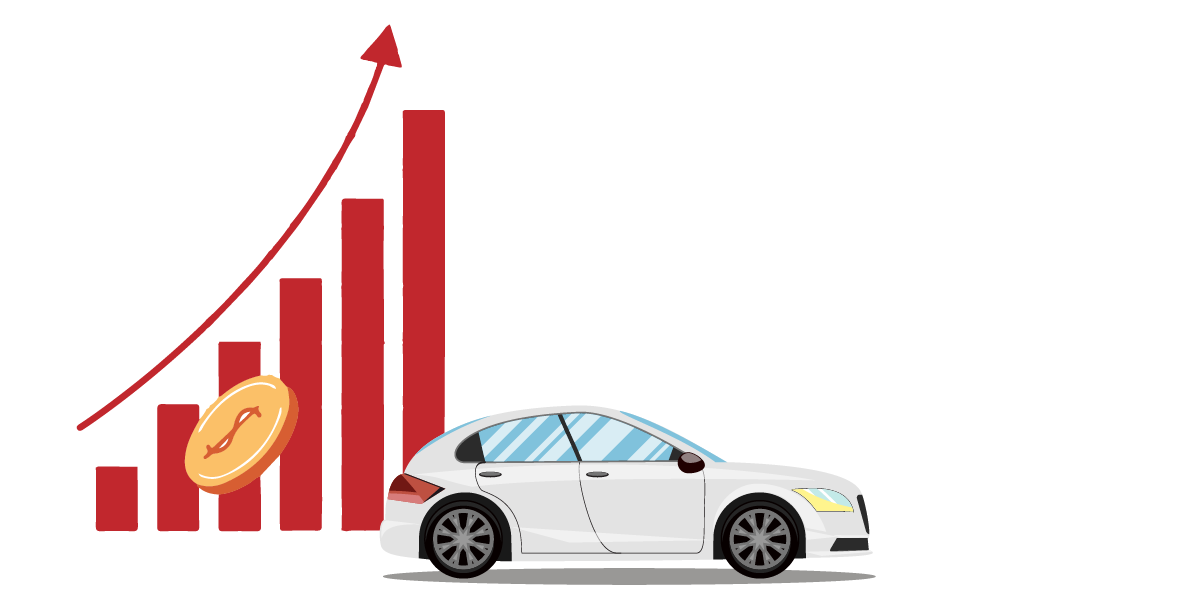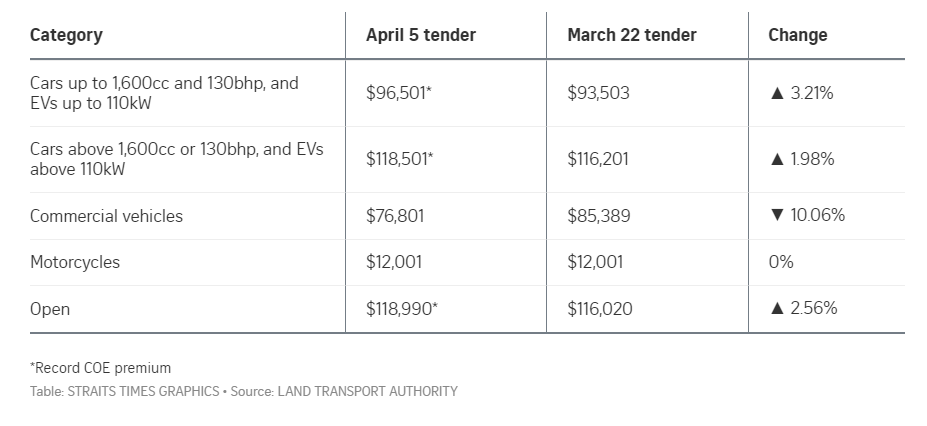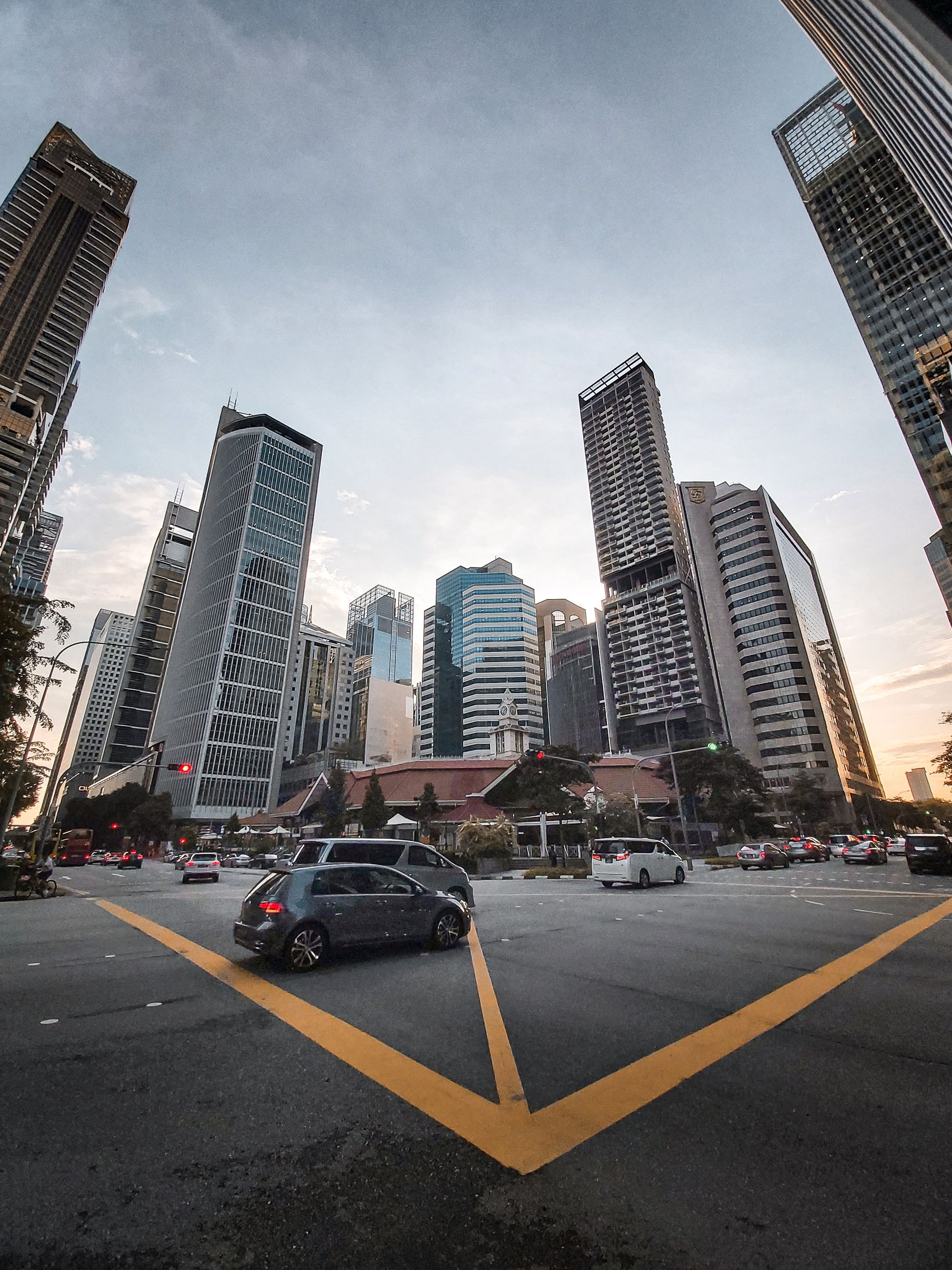Cost of Car Ownership in Singapore: Understanding the Past

Looking at the recent successful bid for the Certificate of Entitlement (COE) in Singapore, one may find it at an exorbitant price of $96,000. At this price, this is almost equivalent to a manager’s annual package with a $8,000 per month salary (excluding bonuses). *Gasp*
Indeed, this is one of the hottest topic among Singaporeans in recent months due to the fact that COE is inching closer to its record high price of $118,001 (Feb 2022). To get a better understanding on this policy, we have to trace back to its background and the government’s initial concerns for Singapore.

Let us turn back in time to look at the policies from then to now: -
| Transport Policy | Year of Introduction | Description |
|---|---|---|
| Road Taxes and car registration Fees | Before 1975 | To curb traffic congestion, the Government introduced measures to restrain car ownership in Singapore. These measures take the form of import tax (a hefty 45% back then), lump sum registration fee, additional registration fee (based on percentage of import price) and road taxes (based on vehicle capacity). |
| Area Licensing Scheme | 1975 | This scheme was to alleviate jams to central area of Singapore during morning peak hours (between 730am to 1015am via coupon based approach. Apart from this, vehicles (including taxis) ferrying fewer than 4 passengers were also required to pay additional fee when entering the area |
| Vehicle Quota Scheme | 1990 | Under this scheme, an individual who buys a new vehicle must bid for a certificate of entitlement (COE). The COE is valid for a period of ten years, after which the owner may extend the validity through paying the associated premiums (on the extension). |
| Electronice Road Pricing (ERP) | 1998 | This was a rebranding of Area Licensing Scheme which utilised technology (automation) to reduce the manpower and cumbersome work processes. Instead of coupons, the fee was transacted automatically once the vehicles pass the gantry via a pre-paid smart card. Furthermore, the technology also deploys Intelligent Transport System (ITS), which uses real-time data to improve traffic management. |

and now, going on to the needs for these policies ...
WHY? WHY? WHY? ...
The main reason for having these policies in place is because firstly, as we know already know is that Singapore is land scarce. With the limited availability of land in Singapore, the government has to balance the needs among industry (focusing on economic growth), housing, transport, parks and nature reserves and recreation facilities, etc, just to name a few.
To give things in perspective, especially on the land use for transport infrastructure, let us dig deeper. A quick check on Singstat in Singapore showed that as of December 2010, the land area of Singapore was at 712.4km2. At the same year, the land for transport infrastructure was 83km2.
In 2010, the land transport infrastructure takes up 11.6% of the land in Singapore.
There are further plans by the government to increase the transport infrastructure to 97km2 by 2030.
With the limited land available, the government realized the disincentive to the ownership of vehicular through various schemes with one which we have grown to be accustomed – Electronic Road Pricing (ERP). With just a beep, the levies to get between places are automatically deducted from your card.
Other reasons such as traffic congestion, poor air quality and growing population are also key factors which the government are taking into consideration for limiting the number of vehicles on the island.
On the growing population in Singapore: - The projected population in Singapore was 6 million (in 2020) to 6.9 million (in 2030). With increasing population growth inevitably means an increased demand in vehicle ownership. However, there is a fixed of COE available at any one time. The scenario we are facing is this: fixed supply of COEs vis a vis endless demand for it. Hence, this is one of the reasons why the prices of COE has been rising consistently since after pandemic.
Other Initiatives
On one hand we have the traffic policies to strike down the dream of having a vehicle in Singapore. At the other spectrum, we see that the government stepped up in terms of the public transport systems and other initiatives.
Did you know we have 6 MRT lines serving more than 140 stations across the little red dot (Singapore)?
These public transport systems were invested and made affordable to the public masses and is a great alternative to driving without the need to worry about parking and charges.
Apart from these, the government has further plans to extend car-lite into housing estates such as in Tengah, Ulu Pandan, Mount Pleasant and Keppel Club Site. At these areas, we can expect reduced parking lots available and residents may be charged a higher season parking if they own more than 1 vehicle.
Other ongoing initiatives such as car-free Sunday, car-free zones are led by Urban Redevelopment Authority of Singapore to allow public to enjoy the spaces available.
These initiatives highlights, without a doubt, that we are moving towards a car-lite society, and that is what the government is preparing us for. The whole rider experience on the public transport and increased car-free zones around the city facilitates the public to appreciate the open spaces better and concurrently aids in reducing our carbon footprint.
What's next?
The policies are here to stay and it is necessary.
The current state of world affairs – ongoing war, economic outlook and climate change accentuates Singapore's position in the world with many rich folks looking to settle here due to our stability of government, low crime rate and an all-embracing culture.
In view of all these, the government should understand that car ownership is income elastic – individuals with higher incomes are willing to own carsssss regardless of price. However, where does that put the average Singaporeans? There would be a need to refine and tweak the policies.
As much as I, too, prefer to own a car due to its convenience, these policies are giving me second thoughts (maybe more thoughts too). As of now, getting around in the ride sharing platforms is a pleasant substitute without the hassle of the extravagant COE, taxes, parking charges, insurance etc that comes with having a car.
#COE Singapore #carownership #landscarcity

Member discussion